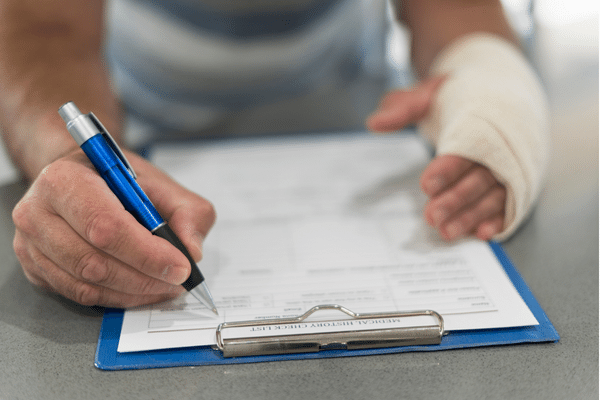|
|
Last Modified on Oct 14, 2024
When you’re involved in a personal injury case of any kind, the time will come when you will most likely need to negotiate with the other party’s insurance company. These personal injury settlement negotiations could happen at any time during your case, with either side trying to settle out of court. They may even occur several times if needed.
When negotiations begin, do you know what to do? Are you prepared? You never know what will happen during these discussions, and if you aren’t ready for them, you will not be prepared to respond the way you need to. Let’s look at some of the key things you need to think about and be prepared for as personal injury settlement negotiations begin.
How Do Negotiations Take Place in a Personal Injury Case?
Your personal injury settlement can come in many ways. It could come in the form of a letter from the opposing attorney/party. Maybe it will happen through informal conversations over the phone with your attorney and the insurance adjuster. It could even be in person. No matter what, things like your claim’s strengths as well as its weaknesses will be brought up and discussed as they try to prove that your case isn’t as strong as you think it is.
Next, you’ll find out what kind of settlement offer is being presented to you. Plan on this amount being lower than what you requested, especially if it’s your first settlement offer. You will most likely counter back, and hopefully, both sides will be able to come to an agreement.
Personal Injury Settlement Preparation
You can do a few things to improve your position and be prepared for a settlement negotiation. These things may include:
1. Know what your claim is worth. Your claim worth can be calculated best with the help of a personal injury attorney. In short, you’ll be adding up any damages that you incurred to your property, medical bills, lost work wages, and then pain and suffering.
If the accident was severe, you might multiply the expenses and damages you added up by 3 or even 5 times. Be sure to work with an experienced attorney to calculate a fair payout amount so that you know what you really deserve. Don’t let the other party tell you.
2. Have a settlement amount in mind that you’re willing to accept. You and your attorney will be putting together a demand letter stating an amount you want and believe your claim to be worth. Know the minimum amount that you are willing to accept so if things get intense, you can have that figure in the back of your mind for guidance. Don’t ever reveal this number to the insurance adjuster or opposing party.
Of course, if the adjuster offers more than your “acceptable settlement amount,” you may need to consider raising your number. In the same way, if new points are brought up that you hadn’t considered, making your case appear weaker, you may need to consider accepting less than you originally wanted.
3. Do not jump at the first settlement offer you get. Once the insurance adjuster gives you your first offer, you never know what you’re going to get. Some try lowballing the first offer to see if you’ll bite. Others may give you a fair offer that is just a little on the low side. Then, depending on the offer, you will decide how to counteroffer.
A reasonable offer can be quickly countered as it’s usually not a high jump to what you need. Showing the adjuster you want to be fair could help you reach a settlement agreement that you can both be happy with in a much shorter timeframe.
4. Get organized. Organizing all your files and documents will not only allow you to feel more confident, but you’ll be at ease knowing you can quickly access whatever document you need. Plus, you’ll appear to be “put together” and show that you understand what’s happening in your case at all times.
Some of the most important things to keep organized are:
- Photos of the scene of the accident
- Witness statements and contact information
- Medical visits and expenses
- Lost income/work statements and records from your employer
- Any communication from attorneys, insurance companies, the opposing party, doctors, and more
- Journal entries documenting the pain and suffering you have experienced
5. Create a Timeline. Organizing and creating a timeline documenting all the events that have occurred because of the accident can be extremely helpful. Include on your timeline the date and time of the accident, any hospital or doctor visits that followed, days that were missed from work, etc., that were not able to be done due to your injuries or pain and suffering.
A timeline can give you a point of reference, keeping things organized and aligned as well as easy to see.
6. Get your settlement in writing. As soon as a settlement has been agreed upon, write a letter to the adjuster confirming what was discussed. It doesn’t have to be long, but make sure it lists the settlement amount and what things that settlement will cover, including damages, medical expenses, etc. Also, add in the date that has been agreed that you will receive your settlement payment from the insurance company. Keep a copy of any responses from the adjuster as well.
Negotiating with Experience on Your Side
The best advice that can be given is to hire an attorney that has experience working through many personal injury settlement negotiations. You can spend hours and hours preparing for your settlement discussion, but nothing trumps the expertise that the team at Gainsburgh, Benjamin, David, Meunier & Warshauer, L.L.C. can bring to the table.
Don’t chance your personal injury settlement offer to the opposing side. Instead, call us at
(504) 522-2304. to schedule a consultation so we can get started working towards a settlement offer that will compensate you the way you want and need.





